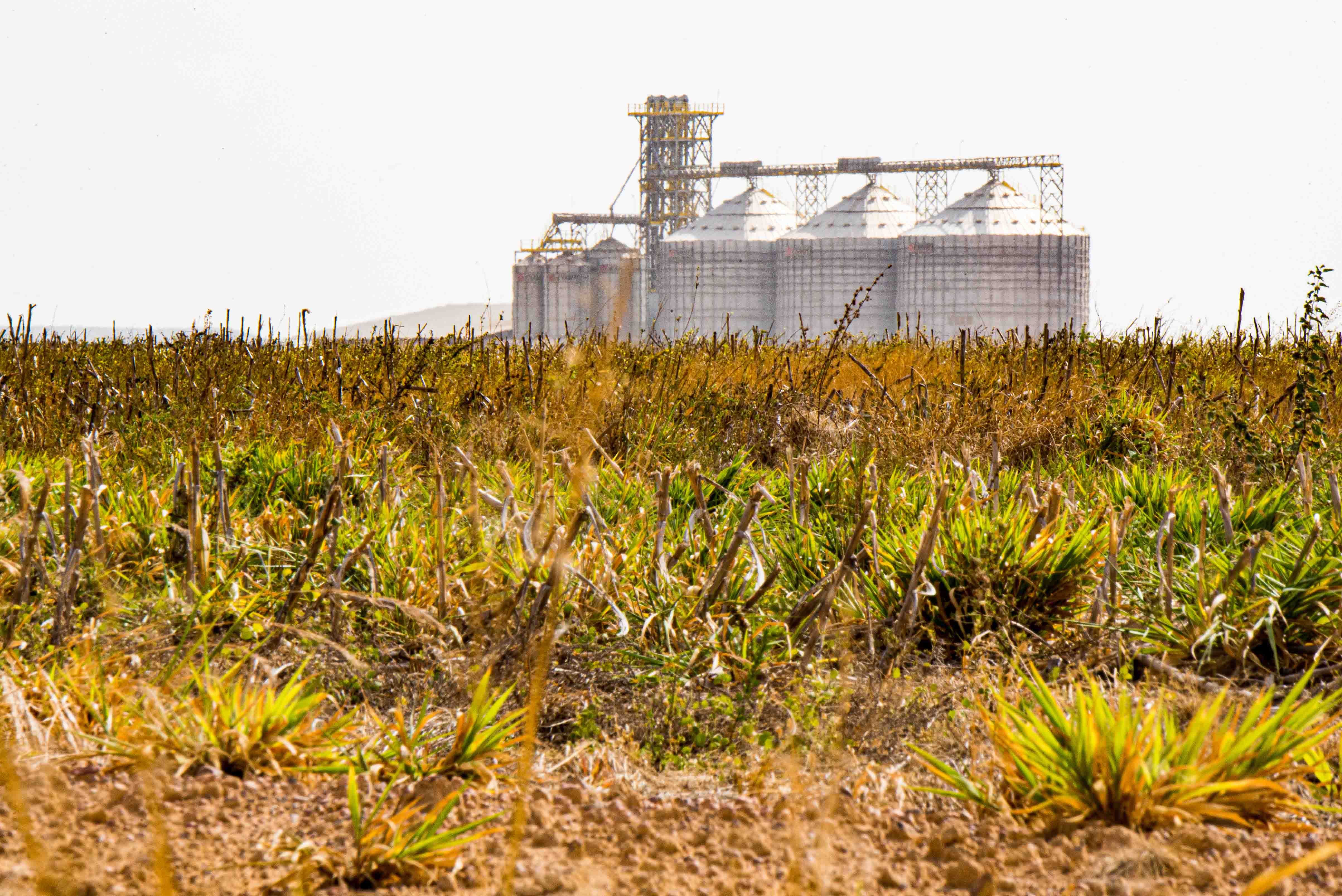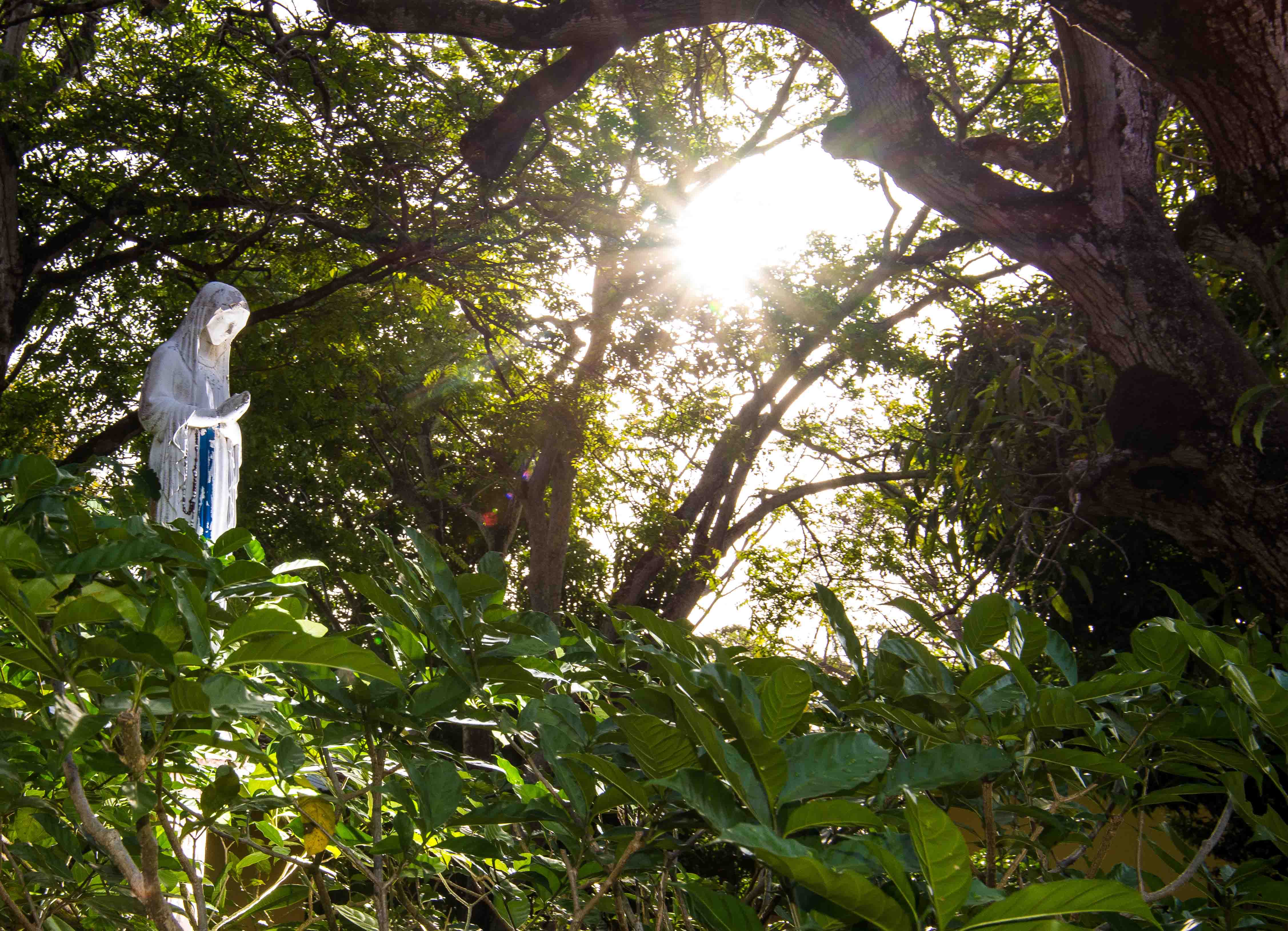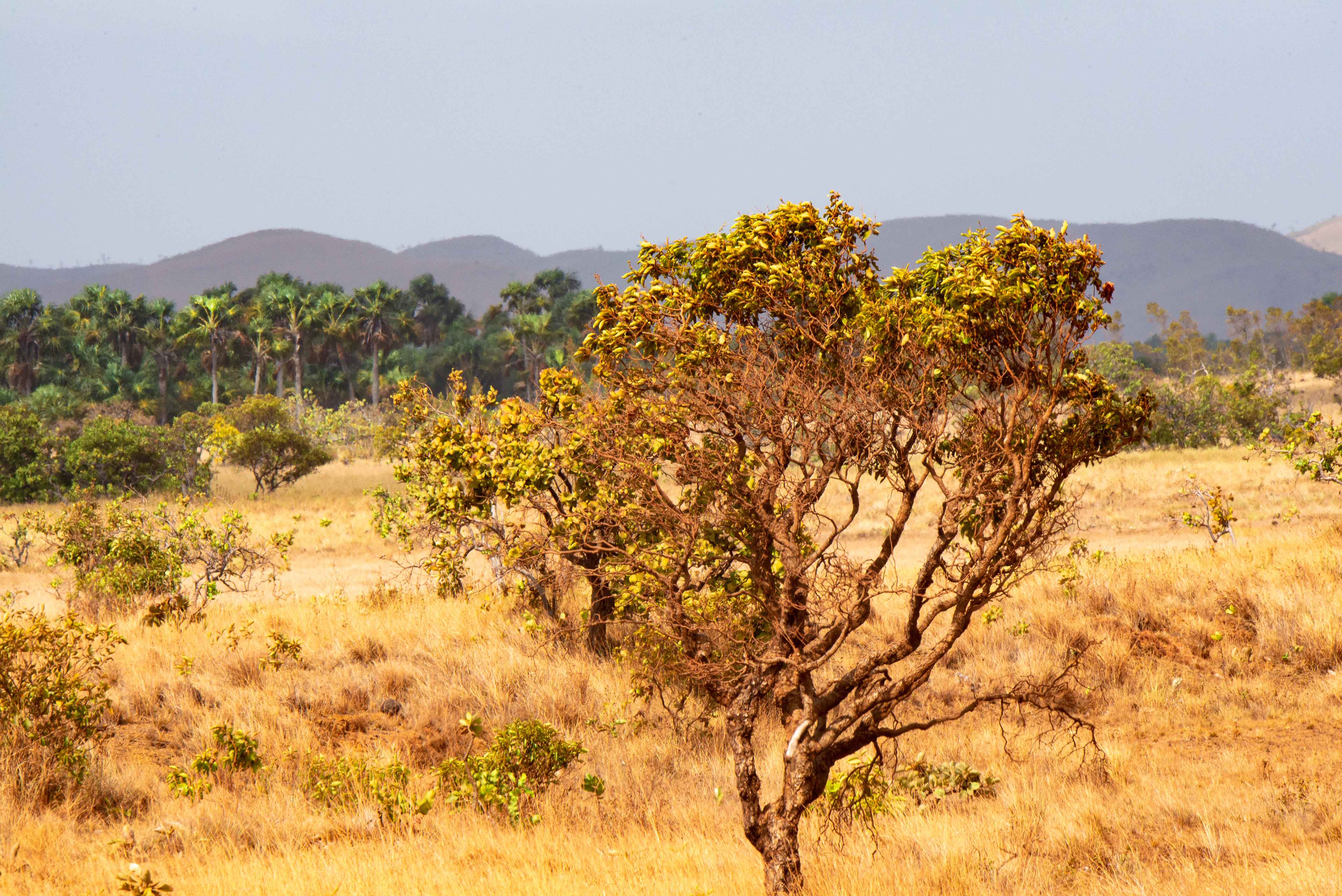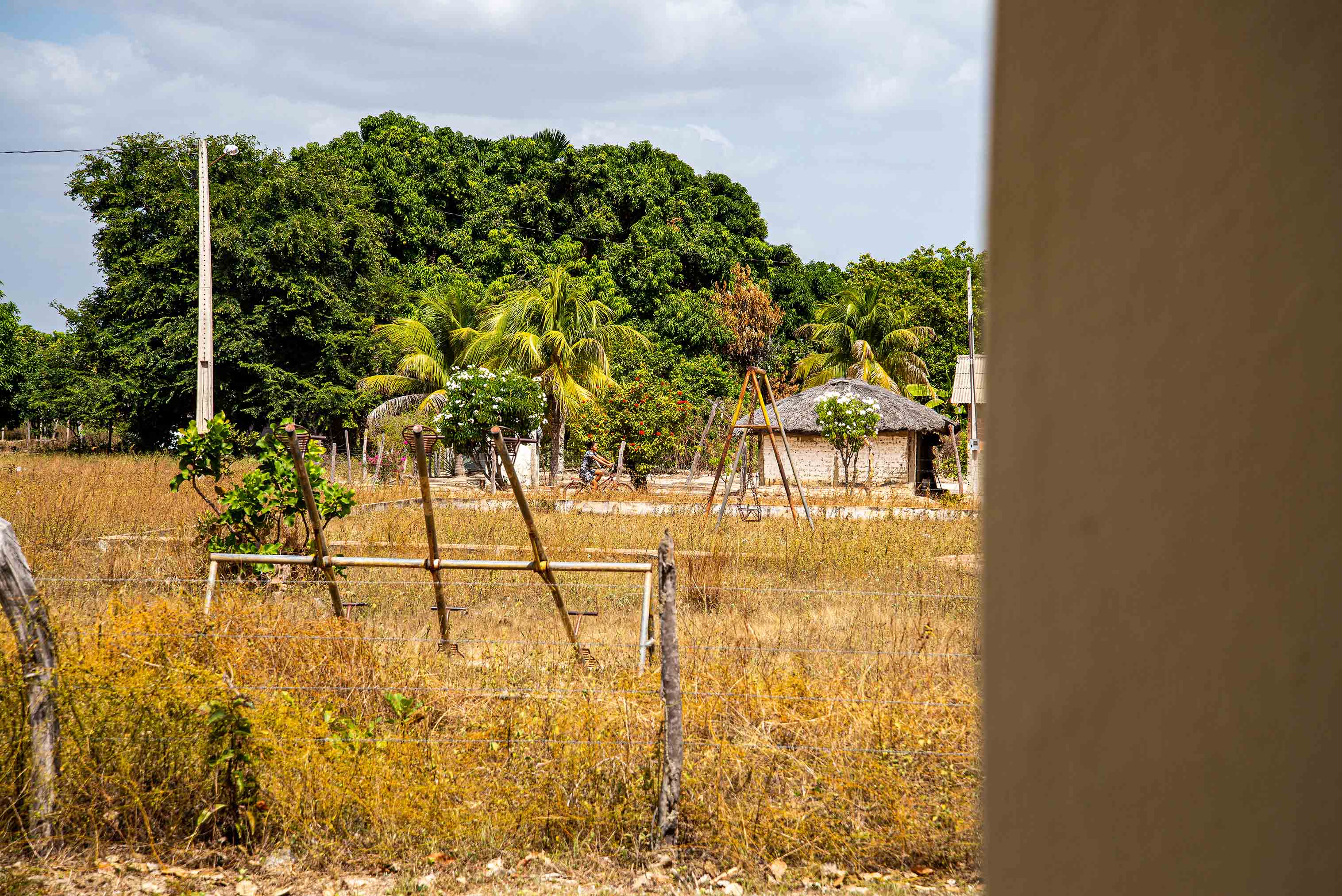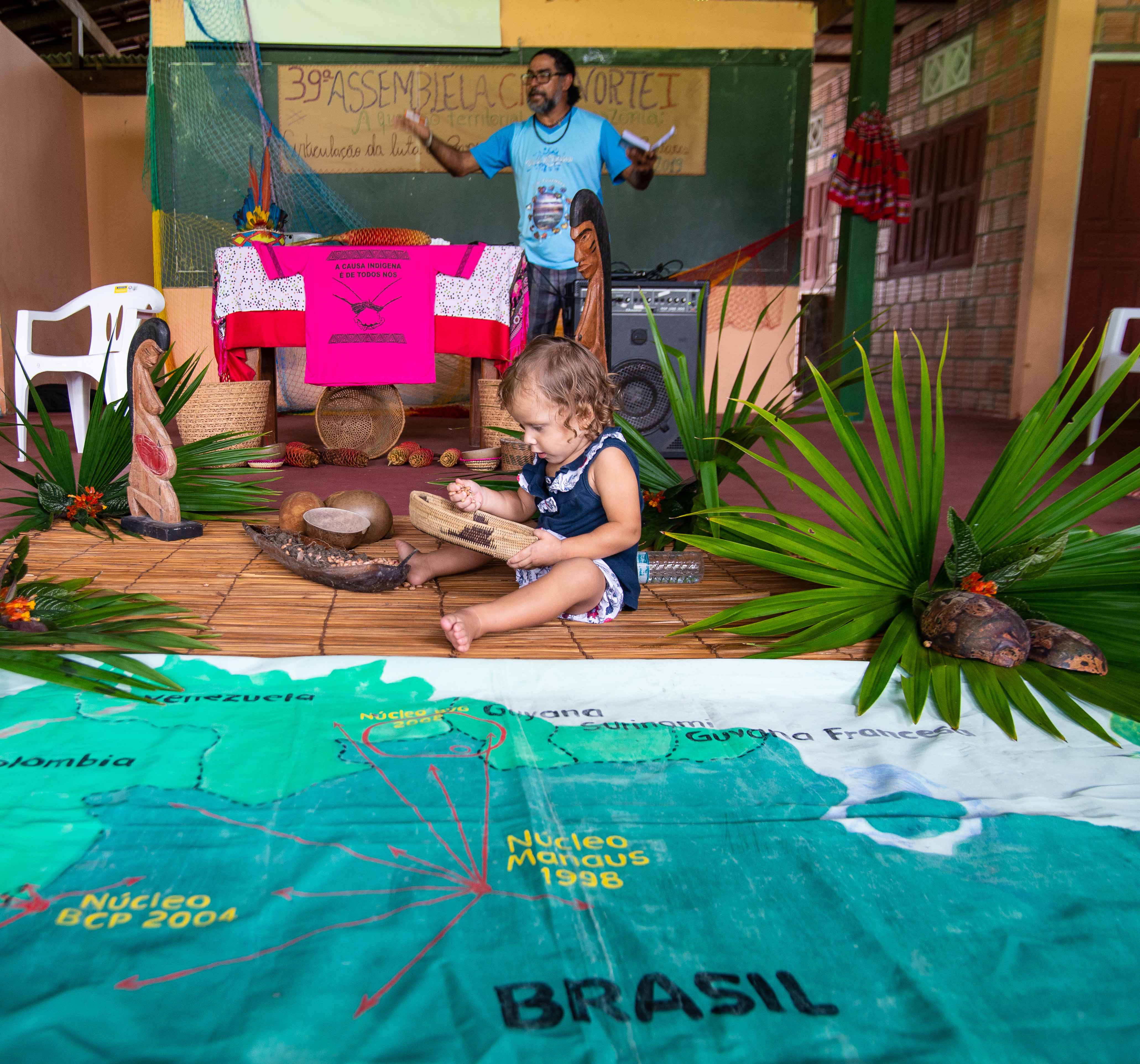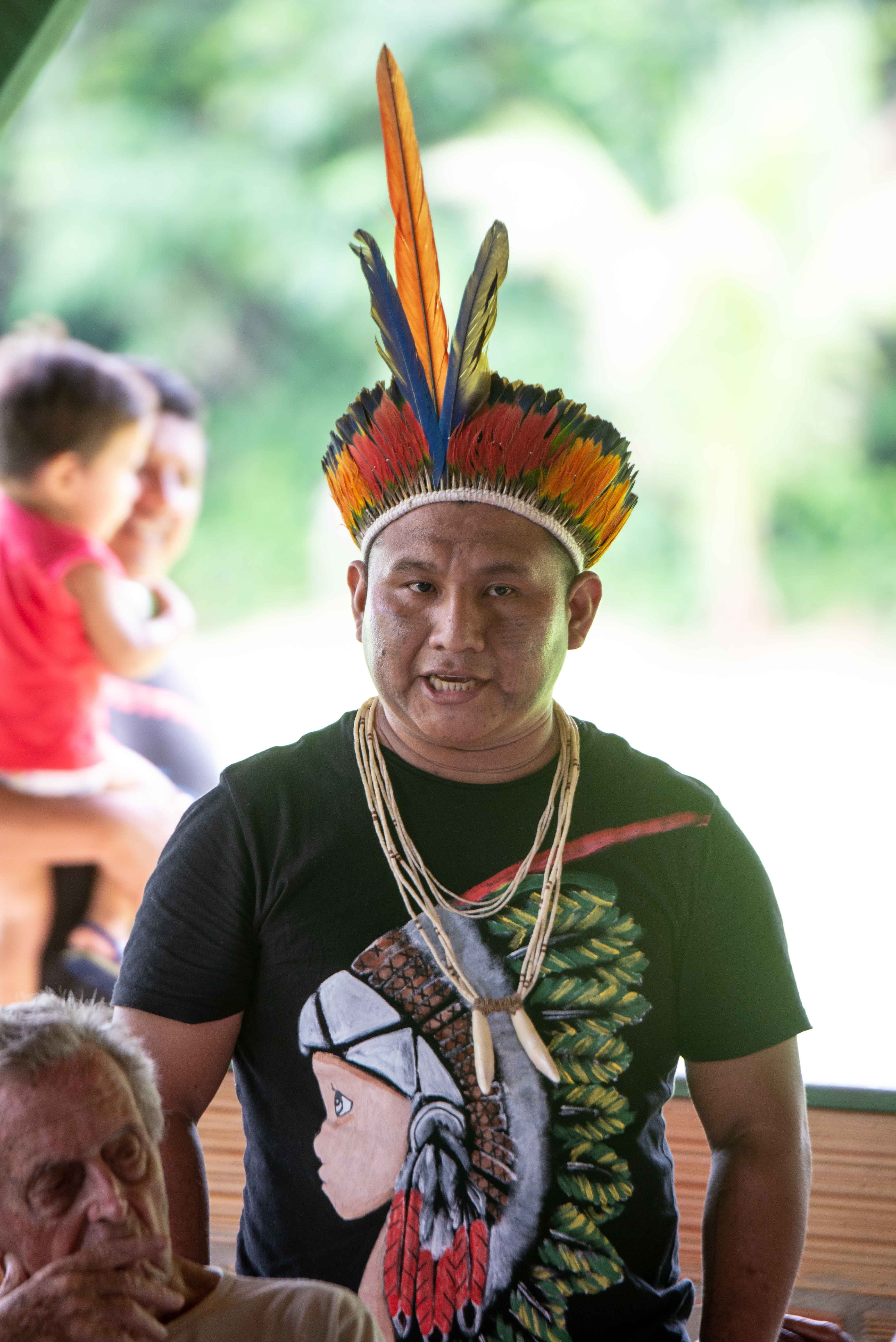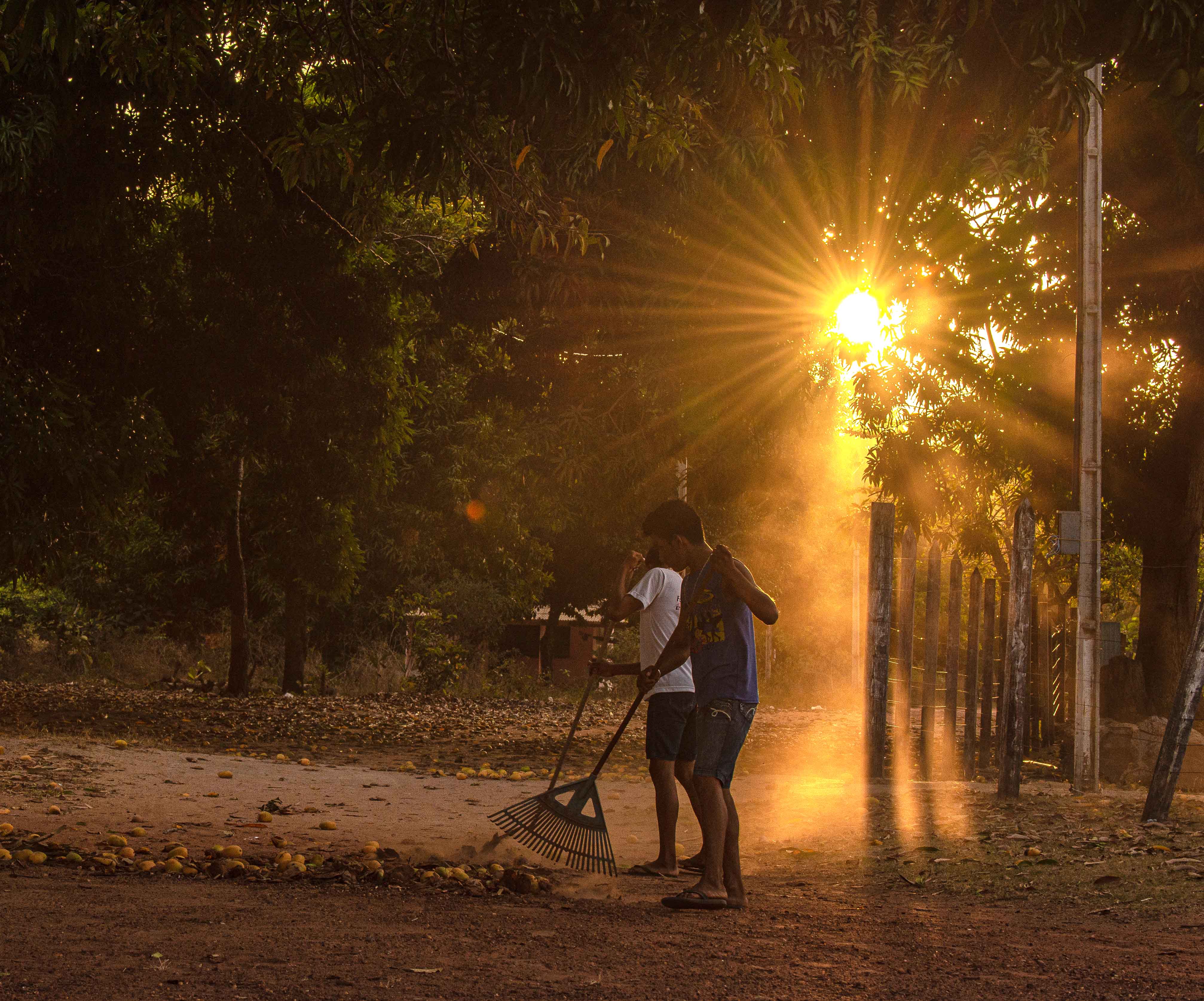Tenente is the 27-year-old co-ordinator for the Indigenous Council of Roraima. He was at this year’s northern region meeting for CIMI, the organization for missionaries run by Brazil’s Catholic bishops.
His message to the missionaries was that Indigenous Brazilians will not be passive observers of the synod in Rome, or passive victims of government plans to turn the Amazon basin into soy farms, mines and logging sites. When 185 bishops and priests, along with 80 non-voting experts and observers, meet in Rome Oct. 6-27, they will have an opportunity to either stand with the Indigenous people of the Amazon or stand apart, and their choice is a matter of life and death for Tenente and his people.
“Without autonomy, we won’t have life. We will die,” Tenente said.
Tenente spoke to The Catholic Register the same week Brazilians learned military intelligence had prepared a report for President Jair Bolsonaro warning against the synod as a global, leftist threat to his government’s plans to exploit the Amazon’s natural resources. Members of Bolsonaro’s right-wing government have been demanding a say in the synod’s agenda.
“It is up to Brazil to take care of the Brazilian Amazon,” said Brazil’s National Security Office in a statement to the press.
“We are worried about it (the synod) and want to neutralize it,” said Bolsonaro’s cabinet secretary for security, Gen. Augusto Heleno.
The Brazilian government’s vision for developing the Amazon has nothing to do with 390 Indigenous peoples of the Amazon basin, as far as Tenente can see. The government has no time for the 240 different languages they speak. Most of all, the government rejects the idea that the Amazon’s original people have any claim to the land they live on, the minerals underneath that land, the medicines hidden in millions of species of plants that grow there or the power of the rivers coursing through their territory.
“Without autonomy, we won’t have life. We will die.”
Control over the land is the only way the Indigenous of the Amazon can control their destiny and assure their rights, Tenente said.
“The principle struggle is territorial,” said Tenente. “The land we consider our mother.”
The Amazon river basin touches nine countries, with 67 per cent of it in Brazil, 13 per cent in Peru, 11 per cent in Bolivia and the rest spread between Colombia, Ecuador, Venezuela, Suriname, Guyana and French Guiana. It’s home to 2.8 million Indigenous people.
Its 390 different original peoples include between 110 and 130 who choose to live apart from the modern world — uncontacted, “free peoples.” Since 1900, at least 90 Indigenous cultures, races or peoples in Brazil have disappeared.
Five-hundred years ago — before the Spanish, the Dutch and the Portuguese — at least 10 million people lived in the Amazon basin.
The Amazon accounts for more than half the world’s remaining rainforest — an area of 5.5 million square kilometres, more than half the size of Canada. More than 20 per cent of the world’s oxygen is produced by the Amazon rainforest. More than half of the world’s estimated 10 million species of plants, animals and insects live there. And 20 per cent of the world’s fresh water passes through the Amazon basin.
But more than 32,000 hectares (80,000 acres) of rainforest are lost every day. In addition, 135 plant, animal and insect species disappear every day — almost 50,000 a year. Amazon researchers say the loss of primary tropical rainforest — the wildest and most diverse swaths — has increased by as much as 25 per cent since the 1990s. A single hectare of rainforest can contain over 750 different types of trees and 1,500 higher species of plants.
Even though 25 per cent of Western medicine is based on rainforest ingredients, less than one per cent of tropical plants have been scientifically investigated for their medicinal properties.
Tenente doesn’t think bishops called by Pope Francis to Rome are going to save him or his people. The struggle for recognition, territory and respect belongs to the people themselves.
“It depends on us Indigenous and on our unity,” he said.
But if the Church can alert the world to what’s happening now in the Amazon, if the Church can simply hold up the Amazon and its people for the world to see, then Tenente believes there’s a chance for a better future. For the Church, a new start in the Amazon means a new evangelization — not an evangelization that conquers, but one that does what Christ did as He washed His disciples’ feet, when He called them His friends.
“New friendships are necessary to make visible to the world what’s at stake (in the Amazon),” CIMI national co-ordinator Gilberto Vieira dos Santos said. “All of this is in danger.”
The Church’s word for new friendships is evangelization.
“New paths of evangelization must be built in dialogue with the ancestral (Indigenous) wisdom in which the seeds of the Word become manifest,” reads the working document for the synod. “The Church became flesh by making her dwelling — her ‘tapiri’ or thatched-roof-shelter — in the Amazon.”
Dos Santos is unsurprised that the Bolsonaro government considers the Church its opponent and rival, or that Bolsonaro is ordering up military intelligence reports on the Church. Brazil’s former military dictatorship (1964 to 1985) sought to assimilate and eliminate the Indigenous in order to develop the Amazon. The generals back then also railed against the Church — even kidnapping and torturing Church representatives. Bolsonaro, a former army captain, has defended and promoted the military dictatorship throughout his political career.
“The dictatorship’s mistake was to torture but not kill,” Bolsonaro told an interviewer in 2016.
On the basis of incomplete records, Brazil’s National Truth Commission determined the military dictatorship killed at least 191 people and another 243 “disappeared.”
In 2017, as he began to ramp up his campaign for president, Bolsonaro outlined his plans for Indigenous and black Brazilians.
“There will not be a centimetre (of Amazon lands) demarcated for Indigenous or Quilombo reservations,” he told an audience in Rio de Janeiro. The Quilombo are communities descended from 19th-century, escaped slaves.
“It’s not just the Indigenous or CIMI that are the target,” said dos Santos. “It’s anybody who suffers in Brazil.”
The Church’s job isn’t to fight for the Indigenous but to stand with them, said CIMI regional co-ordinator Adriana Maria Huber Azevedo.
“The Indigenous are not going to disappear. In the last 500 years there have been many types of resistance. They’re used to resisting,” Azevedo said.
As an anthropologist who spent years living with the Yanomami, the Apurinã, the Jarawara and other Indigenous people, Azevedo wants the Church to stand with the Indigenous.
“I hope the synod will help create a consensus within the Church,” she said. “That the Church will take on a mission that’s not just catechetical or sacramental, but also takes on their (the Indigenous’) cause. I hope they respond with communion and dialogue.”
She wants the synod to address this question: “That the kingdom of God is with the poor — what does that mean?”
Speaking in Peru at the beginning of 2018, Pope Francis said, “the Church is not in the Amazon with ready-made bags, like those who come to exploit it and leave.” When he called for a synod two years ago, the Pope said he wanted the bishops to “identify new paths for the evangelization of the Indigenous, often forgotten and without the prospect of a serene future, because of the crisis in the Amazonian forest.”
Canadian missionary and linguist Fr. Ron Macdonell has been in the Amazon for three decades. He regards the synod as “an invitation to see life in other ways, with the help of the Indigenous.”
Archbishop Roque Paloschi of Porto Velho, who sits on the organizing committee for the synod, told Religion News Service the Church has recognized Indigenous rights for more than 60 years and has “struggled side-by-side with the Amazonian peoples for their right to exist.” Prof. Marcia Oliveira, also a member of the synod organizing committee, emphasizes that the synod is not a defensive “no” to every possible change that will come to life in the Amazon. It’s about seeing the Amazon as the home of what is referred to as Bem Viver. Though Bem Viver can simply mean “to live well,” it has a deeper meaning for the Indigenous of the Amazon. It is an attitude of care that is exercised through love and respect, even piety and veneration, which is fundamental to living well, Oliveira said.
“The Church should always be at the side of those defending life,” is something Paloschi frequently says, according to Jesuit Fr. Paulo Tadeu Barausse, co-ordinator of a Jesuit project on behalf of the Amazon. Barausse spoke to The Catholic Register about the sacredness of the Amazon.
“What’s sacred to the government is the right to private property — the rights of the Indigenous are not sacred to them,” he said. “The Indigenous are linked to the rainforest. If they disappear, then the rainforest disappears.”
A t-shirt in Manaus carried the message: A causa indigenes e de todos nos — The Indigenous cause belongs to us all.
Through October in Rome, the Synod of Bishops will put that thesis to the test.




